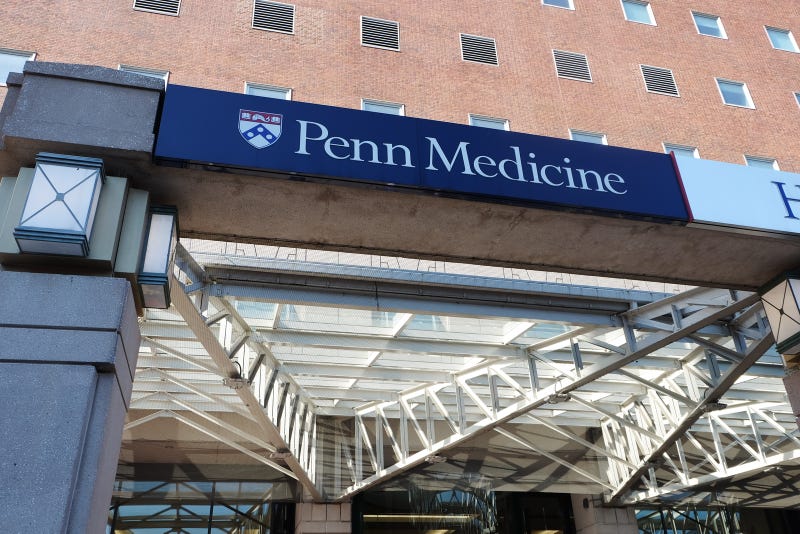
PHILADELPHIA (KYW Newsradio) — Resident physicians and fellows at the University of Pennsylvania say they are unionizing for better work conditions, setting a new precedent for the state. The Philadelphia doctors would be the first residency program in Pennsylvania to unionize.
Dr. Chantal Tapé, a third-year resident physician at Penn Medicine, says that in part, they’re looking to be paid fairly for heavy workloads that generally include 80-hour work weeks, overnights, weekends, and holidays.
“For most residency programs, the salary is somewhere between $60,000 to $80,000 a year. We are not paid hourly, so we just get a flat salary no matter how much we work,” Dr. Tapé said.
“It's very common for somebody who has graduated from medical school to have upwards of $200,000 in debt. I personally have more than $200,000 in debt and that's just from my medical school, not to speak of my undergraduate. We want to be able to be financially stable so that we can start our independent careers in a stable place.”
She said that’s part of why the majority of 1,400 residents at Penn have agreed to be represented by the Committee of Interns and Residents. Annie Della Fera of CIR/SEIU, the largest union for residents and fellows in the U.S., says they sent notice to Penn officials this week demanding that the union be recognized.
“A lot of people don't know that residents are the doctors who would take care of you day-to-day in a hospital. They're the ones who see you from admission to discharge, and residency is required,” said Della Fera.
“These are all doctors that are not students. They're taking care of you, and it's a requirement if you want to become a doctor, if you want to be in academic residency, to go through residency.”
She said that while they have employment contracts when matched with residency programs, they often cannot see the contract or don’t have negotiation power over those contracts before they become accepted into the programs.
“Through their unions, they really see this as the way that they can have some agency over their training and over their lives,” said Della Fera.
Residents like Dr. Madison Sharp, a third-year OBGYN resident physician, say fair compensation would help deliver quality care to patients.
“Staff right now are having to choose between paying their rent versus paying for medication for their child, because of the kind of situation that we're in,” said Dr. Sharp.
“We will be better equipped to take care of our medically complex patient population with a union. Our patients deserve to receive better care than from sleep-deprived, overworked, underpaid, and underappreciated residents and fellows.”
A Penn Medicine spokesperson says they recognize that residents and fellows are a crucial part of the health system and that their wages are highly competitive compared to other local and national institutions.
However, they say “our trainees will best be served by working directly with UPHS administration through our existing Graduate Medical Education Committee structure, which will continue its commitment to a collaborative, flexible approach.”


